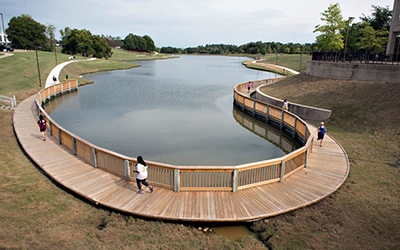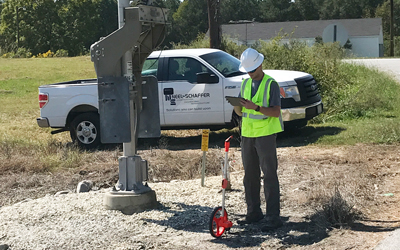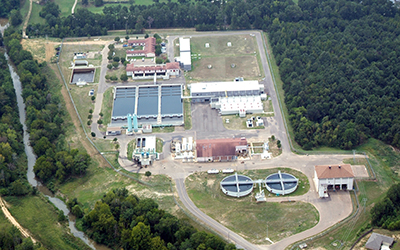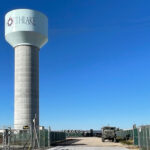The National Weather Service calls flooding the most common natural disaster in the United States, and the Pew Charitable Trust says U.S. flooding “is a pervasive, year-round threat, affecting Americans nationwide.”
Additionally, floods cause more than 100 U.S. fatalities annually, and in 2021 alone, some $85 billion in damage and economic losses were attributed to flood-related disasters. These events can destroy families, wipe out savings, and threaten the infrastructure Americans depend on daily for survival.
At Neel-Schaffer, our engineers and Certified Floodplain Managers (CFM) understand the devastation flooding can cause and the consequences of developing land in flood-prone areas. Per FEMA’s regulations, floodways are off-limits for development, unless you can do so without increasing flood risk to others in the community, but our CFMs know there are many ways to develop land responsibly within floodplains.
Neel-Schaffer’s Hydraulics and Hydrology Discipline, led by Mike Phillips, P.E., CFM, now employs 11 engineers who have achieved the Certified Floodplain Manager certification through the Association of State Floodplain Managers. Established in 1998, the ASFPM CFM program sets a baseline for professional competence and expertise in floodplain management. The program requires passing an exam and then taking continuing education courses annually to maintain certification.
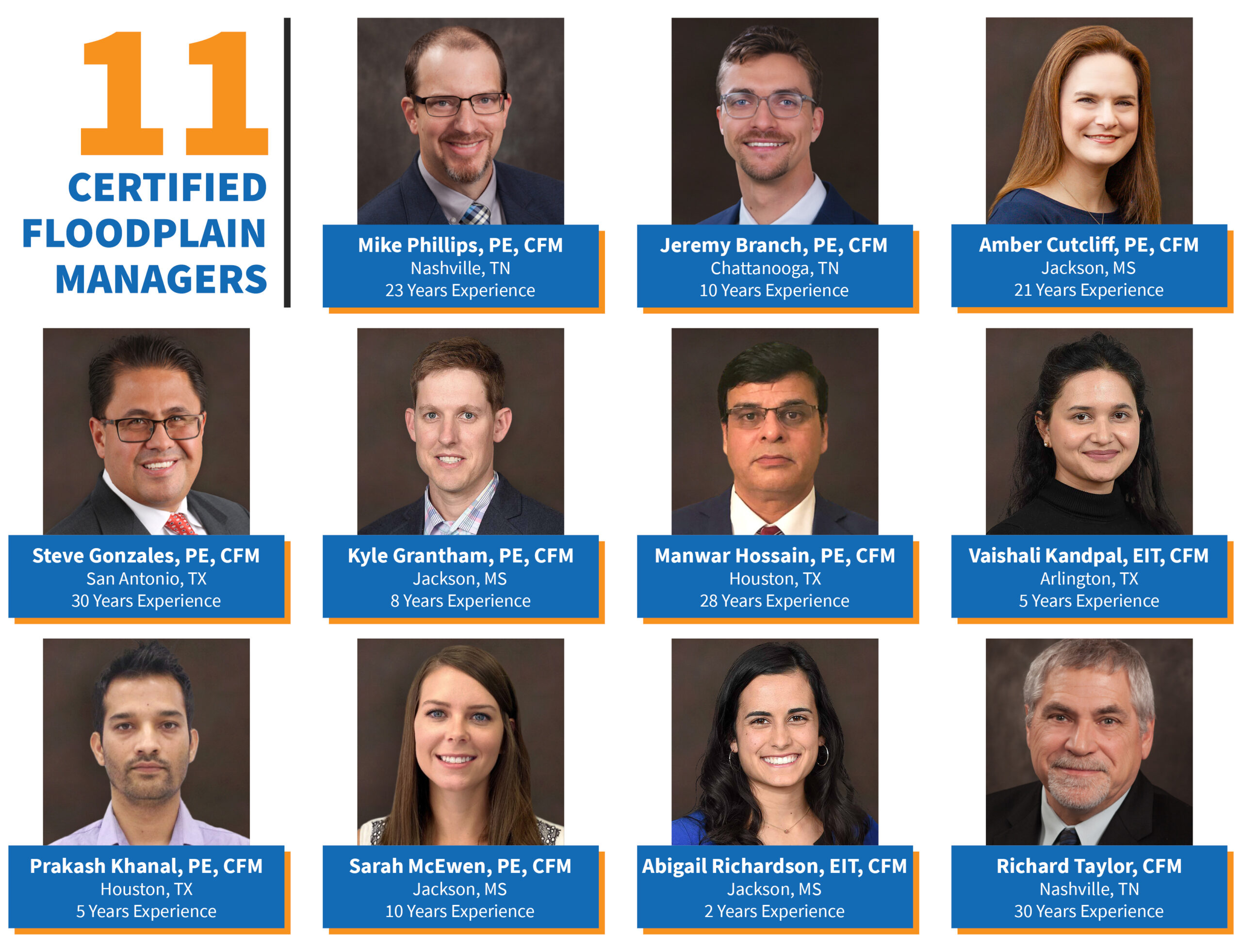
“Having 11 employees with this expertise provides our clients with access to some of the top talent in the Water Resources industry,” said Phillips, who has worked for Neel-Schaffer since 2000 and earned his CFM certification in 2005. “Our clients know they can trust Neel-Schaffer to provide them guidance regarding floodplain management and floodplain development-related issues.”
Added Jeremy Branch, P.E., CFM: “We are recognized as experts within the H&H practice. Clients can trust Neel-Schaffer to have the knowledge and experience that comes with CFM certification.”
Because we are Certified Floodplain Managers, our clients trust us to:
- Review and make decisions regarding construction plans or flood studies for proposed developments;
- Assist them with compliance issues related to their participation in the National Flood Insurance Program (NFIP);
- Develop or update floodplain management ordinances;
- Provide flood control and flood remediation designs that remove or reduce flood risk for private or public properties;
- Update or correct FEMA Flood Insurance Rate Maps, which includes technical submittals and coordination with FEMA.
As developable land above/outside of flood zones becomes scarce, landowners and engineers must find creative and conscientious ways to build within floodplains. Our clients know we will assist them in ensuring responsible designs of both private and public land improvement projects within floodplains.
“Being a CFM is proof to our clients that we are uniquely aware of the challenges associated with development inside a floodplain,” said Abigail Richardson, E.I., CFM. “This gives our clients peace of mind knowing that we are familiar with the rules and regulations set by FEMA and we are equipped to design developments that adhere to those requirements.”
Neel-Schaffer’s knowledge of the NFIP rules and regulations and understanding of the program’s purpose is also a big plus for our clients and helps make the floodplain development process much smoother for everyone involved.
Said Sarah McEwen, P.E., CFM: “As FEMA’s H and H analysis methodologies increasingly adopt a probabilistic understanding of flood risk, we are excited to support our state and local communities as they plan, prepare, and move to a more resilient future.”
Neel-Schaffer was founded as a traffic and transportation consulting engineering firm 40 years ago but quickly grew into a multi-disciplined firm that now offers a wide variety of services to our clients and has 500-plus employees working across a nine-state Southeast footprint. Our H/H group now has more than 30 employees, and we are proud to have 11 CFMs who stand ready to help our clients with all of their floodplain, FEMA, and NFIP compliance needs.


